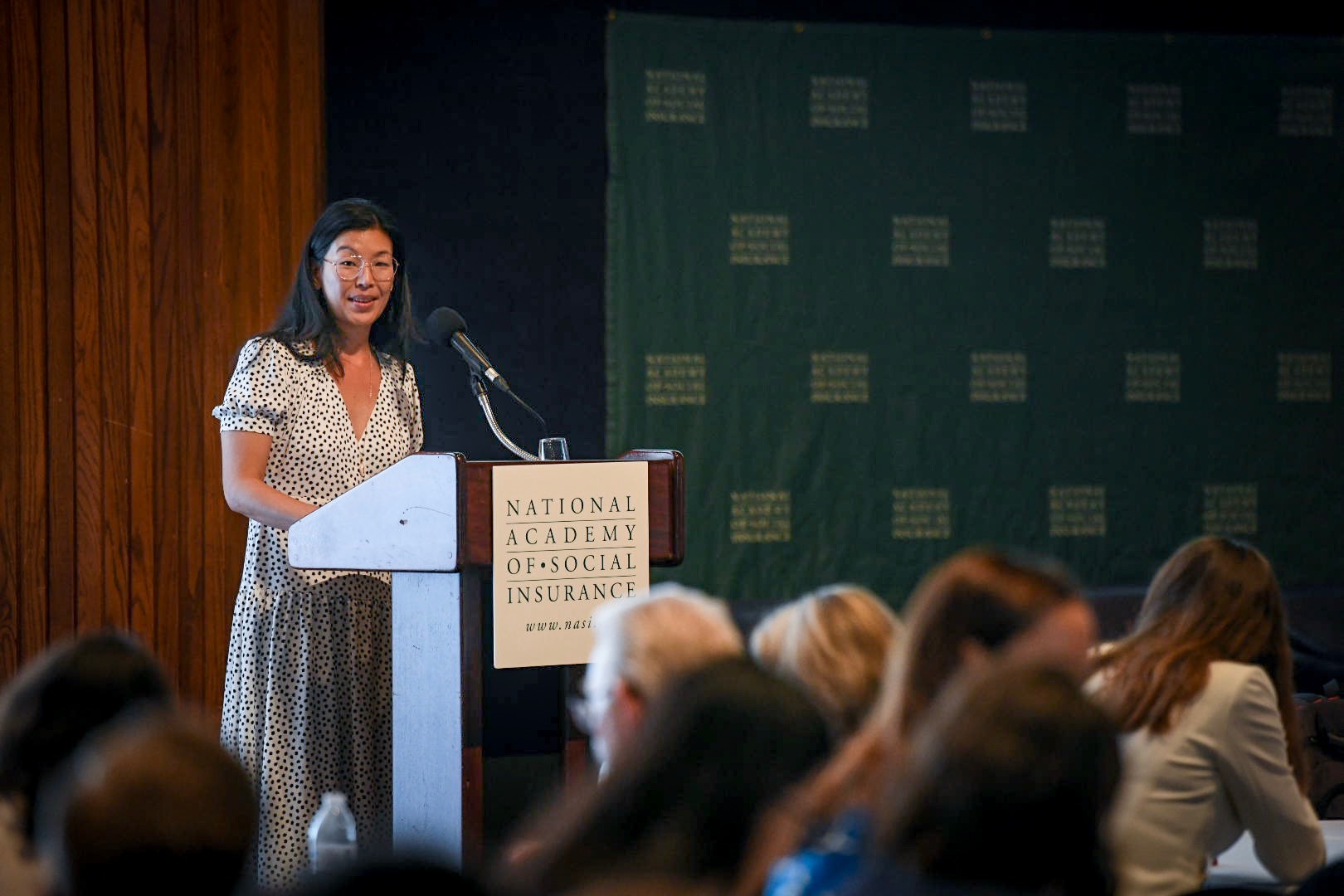
On Monday, June 24th, we took a huge step forward in changing the way that we care.
Because the way we care for our loved ones in this country isn’t working…but you probably already knew this. If you are a caregiver, you know from personal experience how patchwork our current care system is. You’ve struggled to find quality care, been unable to afford the care your loved one needed, and/or had to take time from work or quit your job in order to care for a child, parent, partner, or yourself.
These impossible choices strain us – mentally, physically, emotionally and financially. And when we’re unable to successfully cobble together the care our loved ones need, we often feel like failures for not upholding our responsibilities or losing the joy in our relationships.
But in reality, the inability to give our loved ones the care they need when they need isn’t our individual failure. It’s society’s collective failure.
That’s why last year, the National Academy of Social Insurance and Caring Across Generations gathered 29 of the leading experts in caregiving to address how we could collectively solve our care crisis. These individuals have spent their careers researching and developing policies on paid leave, childcare, and long-term services and supports. So it was a natural next step for us to pull together and document the best we can do on each of these fronts – AND to figure out what an integrated approach would look like, because no one experiences care needs in isolation.
Universal Family Care is Caring Across Generations’ BIG policy idea for an integrated approach. It’s big. It’s bold. Most importantly, it’s what our families need, and it’s doable!
On Monday, we officially released Designing Universal Family Care, a 300-page roadmap for getting to UFC. We released the report with an event in Washington D.C., which drew more than 150 policy experts, advocates, allies and supporters to listen to panel discussions, and eagerly ask questions.
Here are some highlights:
“How many of us have provided care work at some point in their lives?” #Caregiving social insurance programs such as #UniversalFamilyCare could provide needed support to American families https://t.co/UgiFoTfMUv pic.twitter.com/dt2gDaYhkj
— National Academy of Social Insurance (@socialinsurance) June 24, 2019
“Improving the quality of care, building up the care provider workforce, and improving equity and access to care.” #UniversalFamilyCare @albradley416 pic.twitter.com/NdX5QvhFys
— National Academy of Social Insurance (@socialinsurance) June 24, 2019
Yes @MayaRockeymoore! It is time we stop fighting over crumbs or slices and come for the entire bakery! #universalfamilycare #caringmajority https://t.co/LXMiuA0dL0
— Josephine Kalipeni (@malawian81) June 24, 2019
.@IndivarD: #UniversalFamilyCare would also advance gender, racial, and social justice since most care workers are women, esp. women of color.
— Simona Combi (@combione) June 24, 2019
And the discussion didn’t stop there – allies and supporters graciously shared Ai-jen and Ben’s op-ed making the case for UFC online, in addition to sharing out some highlights from the report, with #UniversalFamilyCare trending on Twitter:
These intergenerational pain points of a crumbling care infrastructure from child care to end of life care are exactly why I do the work that I do. We need #UniversalFamilyCare. https://t.co/HMolCvc4j9
— C.C. (@conniedotcho) June 24, 2019
I have been working at a summer camp in a long term family shelter, and I would love to see the amazing kids and families I work with benefit from #UniversalFamilyCare https://t.co/bKscwR8zdA
— Meghan Swyryn (@meghanswyryn) June 25, 2019
#DYK: Direct care workers – mostly women, women of color, and immigrants – power a $78 billion dollar industry but only make around $15,100 per year. #UniversalFamilyCare! https://t.co/NXtdZcIikx pic.twitter.com/Qk2DSkmAou
— Justice in Aging (@justiceinaging) June 24, 2019
In the richest nation on earth, it’s unacceptable that millions struggle to care for their loved ones.#UniversalFamilyCare is the deeply feminist policy that would finally put U.S. families’ minds—and paychecks—at ease.@aijenpoo & @benveghte / @nytimeshttps://t.co/LK4iqU4Tqu pic.twitter.com/tnYXdUoaKZ
— Institute for Policy Studies (@IPS_DC) June 25, 2019
This report is a huge step forward. It helps us to begin to formulate a solution that meets the scale of the problem, but there’s still work to be done. There are still questions to be answered. And we need your help in making sure this big, bold idea becomes the innovative feminist policy that changes the way we care.We’ll be hosting more conversations about UFC across the country in the months to come, and working to make sure elected officials and candidates prioritize our families in 2020. So stay tuned, and in the meantime, check out the report, or get in touch to learn more or to suggest a way to help make UFC become reality!